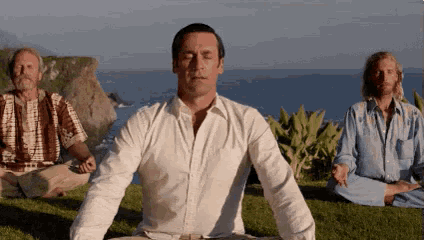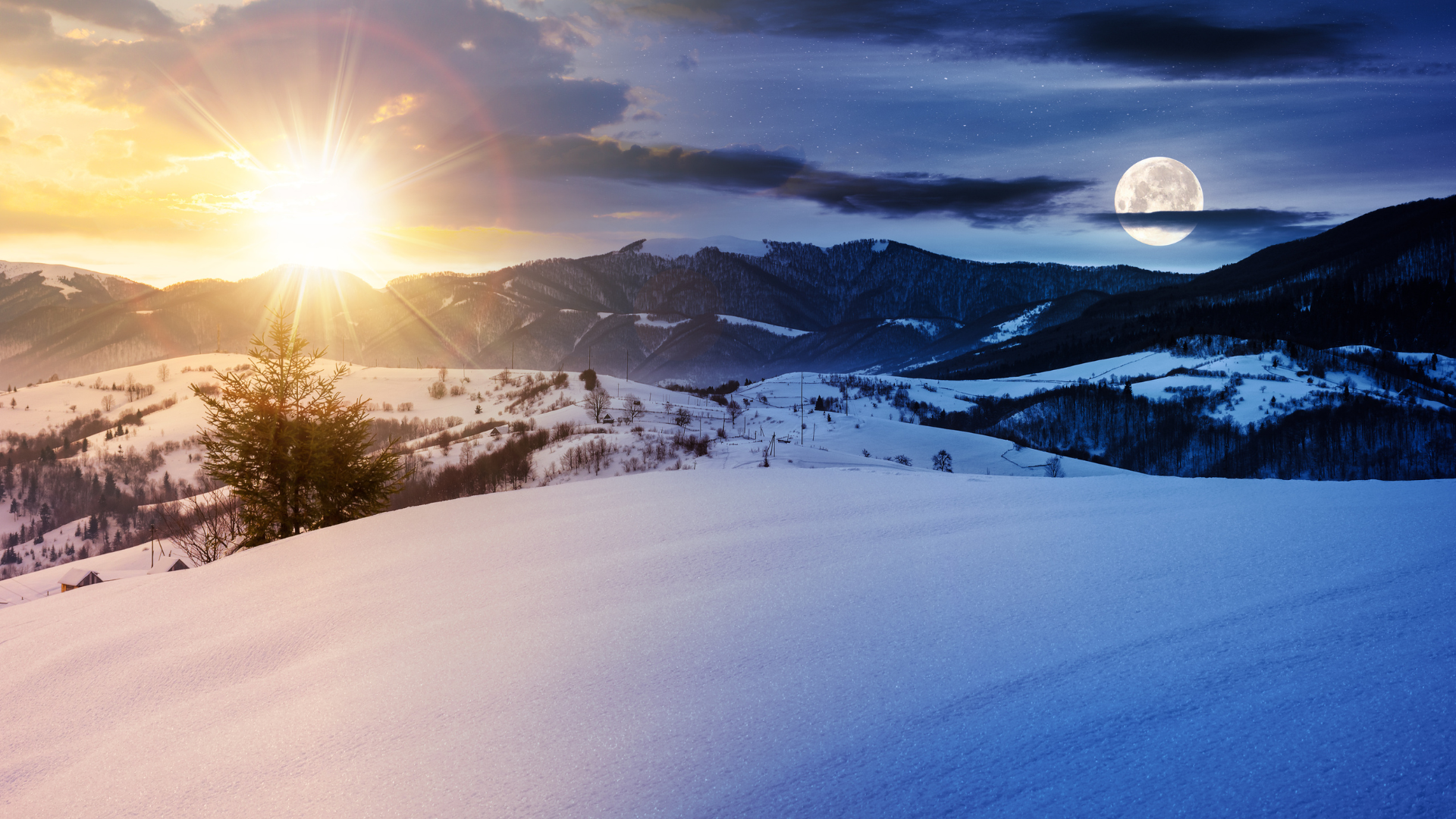Winter Called, it wants you to sit the F down
Pause for Reflection in the Midst of it All
As both World Meditation Day and Winter Solstice arrived in the heart of holiday chaos yesterday, these events offer a timely reminder to slow TF down.
For many, these weeks around Christmas and New Year’s are jam-packed with tying up loose ends, crowded travel, high-energy social gatherings, potentially some WILD winter weather, and endless to-dos.
I know you're gonna tell me that you won't have time or a single moment to yourself, but that's all the more indication that you really need this!
So this is an invitation to take a moment. (Everyone around you will be grateful for it whether they realize why or not!)
The Science-Backed Benefits of Meditation
I feel like I’m beating a dead horse sometimes when I call this stuff out, but I know SO many of you are reading this and NOT doing it, so lemme just regurgitate this a little more:
Meditation is NOT just some woo-woo spiritual practice; it’s a scientifically validated tool for improving mental and physical health.
Here are some key benefits:
Stress Reduction: Regular meditation can lower cortisol levels by up to 20%, helping to alleviate stress and its long-term impacts (1).
Improved Focus: Meditation strengthens neural connections in the prefrontal cortex, enhancing attention and learning abilities (2).
Emotional Resilience: Mindfulness reduces symptoms of anxiety and depression, offering a buffer against emotional turmoil (3).
Better Sleep: Studies show meditation improves sleep quality and reduces insomnia by calming the mind before bed (4).
Physical Health: Meditation lowers blood pressure, boosts immune function, and slows cellular aging (5).
Seasonal Relevance: During the hectic holiday season, meditation can help manage stress, cultivate patience, and provide a much-needed pause from the chaos.
Starting Small: Meditation Basics
Meditation doesn’t require perfection, quiet rooms, or hours of free time. It’s about showing up as you are.
I really like Pema Chödrön’s simple approach (from one of the books that saved me in some really dark times: When Things Fall Apart ) makes meditation accessible, even during holiday chaos when you may think you have no time.
Step-by-Step Instructions:
Find Your Posture: Sit comfortably in a chair or on a cushion with your spine straight but relaxed. Rest your hands lightly on your thighs. Keep your eyes open with a soft gaze downward to stay present.
Focus on Your Breath: Bring attention to your natural breath. Observe its rhythm without trying to control it. Feel the inhale and exhale as they are.
Notice Wandering Thoughts: When your mind inevitably wanders, don’t judge or fight it. Gently label it “thinking” and return to your breath.
Be Gentle: Meditation isn’t about achieving a silent mind. It’s about staying with yourself in the present moment, no matter how noisy it feels.
Start Small: Begin with just 2-5 minutes a day. Consistency matters more than duration.
A Note on Guided Meditations: Apps like Insight Timer or Calm offer short, effective meditations for busy schedules, but I highly recommend trying it without the crutch.
For YEARS, I insisted that I could NOT meditate on my own, but when I committed to this practice in VERY short spurts using the instructions above, I grew to love it and starting being able to sit for longer and longer time periods to get the max effect.
Holiday Meditation Hacks for Busy Minds
Meditation doesn’t have to take hours or perfect circumstances. Here are some practical tips for finding mindfulness amid the holiday hustle:
Morning Stream Practice: Start your day with 2 minutes of breath awareness. Visualize your breath as a gentle stream flowing in and out.
Walking Meditation: Use holiday travel or errands as a mindfulness practice. Focus on each step’s sensation and your surroundings.
Shower Reset: Let the water ground you. Imagine it washing away stress as you take deep, calming breaths.
Mindful Moments in Chaos: Use everyday cues, like a clock ticking or the sound of laughter, to pause and take three slow breaths.Meditation lowers blood pressure, boosts immune function, and slows cellular aging (5).
The Winter Solstice and Meditation
What the Solstice Represents: The winter solstice marks the year’s darkest day, inviting us to honor stillness and reflect. Ancient traditions recognized it as a turning point—a time to let go of the old and plant seeds for renewal as the light returns. Energetically, it’s a moment to pause, rest, and realign, much like meditation.
Why Meditation Fits: During the solstice, meditating allows us to embrace the darkness—both literal and emotional—and create new space for light and growth. It’s a chance to acknowledge our need for rest from the hustle and reconnect with what truly matters.
Solstice-Inspired Meditation Practice:
Find a comfortable seated position with a straight spine, in a darkened room with a single candle lit.
Soften your gaze and focus on the candle’s flame and your breath. Let the light symbolize hope and intention for the months ahead.
Reflect: What are you ready to release with the passing year? What do you want to invite as the light returns?
Breathe deeply, honoring whatever comes up as you acknowledge it and let it go.
So Sit Your @ss Down Already!
Er, I mean rest, reflect, and realign this solstice and beyond …
As the year draws to a close, honor your need for rest and reflection. Remember that even a single breath can reconnect you to peace. Use this season to let go of what no longer serves you and plant seeds for the light ahead.
P.S. Need a guided grounding exercise to calm your nervous system before you can even contemplate sitting still?? I got you! The Get Grounded audio is right here for ya. You’re welcome!
References
Tang, Y.-Y., Hölzel, B. K., & Posner, M. I. (2015). The neuroscience of mindfulness meditation. Nature Reviews Neuroscience, 16(4), 213-225.
Goleman, D., & Davidson, R. J. (2017). Altered Traits: Science Reveals How Meditation Changes Your Mind, Brain, and Body. Penguin Random House.
Goyal, M., Singh, S., Sibinga, E. M. S., et al. (2014). Meditation programs for psychological stress and well-being: A systematic review and meta-analysis. JAMA Internal Medicine, 174(3), 357-368.
Ong, J. C., Shapiro, S. L., & Manber, R. (2008). Mindfulness meditation and insomnia: A meta-analysis. Annals of the New York Academy of Sciences, 1129(1), 287-304.
Epel, E., Daubenmier, J., Moskowitz, J. T., et al. (2009). Can meditation slow cellular aging? Psychosomatic Medicine, 71(5), 491-506.


